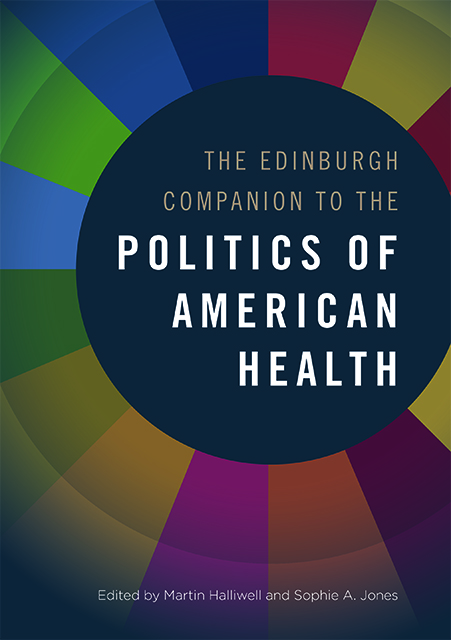Book contents
- Frontmatter
- List of Contents
- Notes on Contributors
- Introduction: The Political Landscapes of American Health, 1945–2020
- I Geography, Community and American Health
- II Critical Health Conditions: Debates and Histories
- III The Politics of Children's Health
- IV The Institutional Matrix of Health Care
- V The White House, Congress and Health Reform
- VI Justice, Ethics and American Health
- VII Public Health and Global Health
- General Bibliography
- Index
1 - Health and Inequality in the Postwar Metropolis
Published online by Cambridge University Press: 12 August 2023
- Frontmatter
- List of Contents
- Notes on Contributors
- Introduction: The Political Landscapes of American Health, 1945–2020
- I Geography, Community and American Health
- II Critical Health Conditions: Debates and Histories
- III The Politics of Children's Health
- IV The Institutional Matrix of Health Care
- V The White House, Congress and Health Reform
- VI Justice, Ethics and American Health
- VII Public Health and Global Health
- General Bibliography
- Index
Summary
In the winter of 1960, protests erupted in Chicago after the death of Albert Marshall, a Black factory worker from the city's South Side. The tragedy began in the wee hours of 30 January, when Marshall and a fellow Black pedestrian named Roosevelt Wright were critically injured after being struck by white motorist Frank Angotti, who was apprehended after fleeing the scene. Upon arriving at the crash site, emergency workers transported Marshall and Wright to nearby Roseland Hospital, a nominally integrated facility. However, officials at Roseland refused to treat the two victims, claiming the hospital was full. While staff members arranged to have the men moved fifteen miles away to Cook County Hospital – the public facility where most of the city's Black and Brown residents received care – Marshall and Wright sat largely unattended for three hours. Wright, despite suffering from severe trauma, spent that time in a hallway. Although the more seriously wounded Marshall – with a broken back, cracked skull and internal bleeding – was taken to Roseland's emergency room, he received only superficial care there. Eventually, police loaded the two men into a squad car and drove them to Cook County where they received treatment. Wright barely survived the ordeal, but Marshall died soon after arriving at Cook County.
Black Chicagoans were outraged by Marshall's death. For months, activists regularly marched against the discriminatory policies at Roseland and other area hospitals. Protesters also condemned the handling of Angotti, whom prosecutors charged only with two minor offences. In the end, though, the demonstrations were largely unsuccessful. Angotti never faced any serious criminal charges. Furthermore, the victims’ families did not receive any compensation, and officials from the city and area hospitals declined to make substantive policy changes in the wake of the incident. For many African Americans in Chicago, the message sent by municipal and health care officials was clear: Black lives were expendable.
The cases of Albert Marshall and Roosevelt Wright embody a much larger history of racial health and health care inequality in the post-World War II American metropolis that is at the heart of this chapter. Like Angotti, ordinary whites of this era often devalued the lives of African Americans and other people of colour. So too did many members of the white medical establishment, along with numerous police officers, politicians and others in positions of power.
- Type
- Chapter
- Information
- Publisher: Edinburgh University PressPrint publication year: 2022

